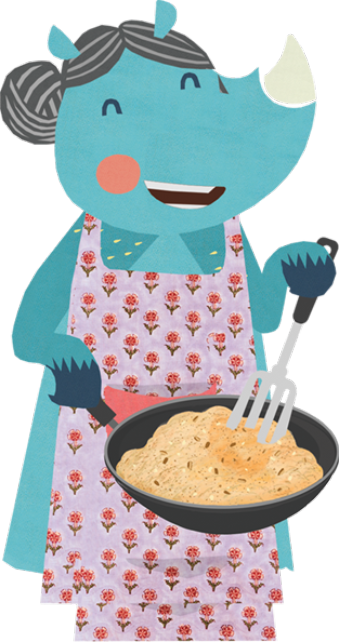For any parent, it’s excruciating to watch your little one in pain or discomfort when they’re under the weather. But in fact, babies, especially in their first year of life, are more susceptible to catching colds and coughs due to their developing immune systems.
Don’t forget that this is a normal part of their growth and doesn't mean their immunity is weak. In fact, these encounters with viruses and bacteria are crucial for strengthening their immunity over time.
Understanding Colds & Coughs in Babies
Babies, just like adults, can catch colds from viruses in their environment. In their first year, they may experience up to seven colds (in a year), which is entirely normal. If your baby is below 3 months old and shows signs of a cold or cough, it's best to consult your doctor immediately. However, for babies above 3 months, most common colds can improve on their own with sufficient rest.
 Did you know
Did you know
Similarly, low-grade fevers (below 101 degrees Celsius) help the body fight off infections and should be allowed to run their course. High-grade fevers (above 102 degrees Celsius) certainly require immediate medical attention and medication.
Manage the Symptoms
While medications won't cure a child’s cold or cough instantly, they can help manage the symptoms and provide comfort to the baby. All medications should be prescribed by your baby’s doctor.
Here are some care tips to follow:
Hydration
Dehydration is the most important symptom to be managed when your baby is sick. Babies get dehydrated when they’re sick, so the obvious trick is to offer them plenty of fluids.
1) Breast milk or formula are the best options at this age. Increase the number of daily feeds if needed. When babies are sick, they tend to become clingier and may demand more breast or formula feeds. Breast milk also has protective antibodies.
2) Warm water can be soothing for your baby, so consider offering them 1 or 2 sips of warm water instead of room-temperature water during or after meals.
3) Warm, thick soups like chicken soup can help reduce inflammation and clear mucus. Avoid sweetened or caffeinated beverages.
Nutrition
1) Babies may have reduced appetite when they’re sick, and this is completely normal. However, to keep up their hydration and nutrition, breast milk or formula feeds should be encouraged – the more the better! You can also offer fruit or curd, which support the body in fighting off infections. As opposed to the common misconception that fruits or curd worsen a cold or cough, they are very beneficial when one is sick. Just remember to offer them at room temperature.
2) Healthy fats like ghee, in moderation, are beneficial for sick babies. Offering them a balanced, nutritious meal will help your baby recover faster and boost their immunity.
3) Haldi (turmeric) and ajwain (carom seeds) have anti-inflammatory and anti-viral properties and can be added to your baby's food. Try adding a tiny, tiny pinch of black pepper powder when you’re using turmeric in cooking. Black pepper boosts the good properties of turmeric.
Congestion
Babies may have stuffy noses or difficulty breathing. Parents can gently help their little ones to eliminate this mucus so they get some relief. Here are some tips:
1) Suction your baby’s nose. Use a bulb syringe or nasal aspirator. One end of the nasal aspirator pipe is placed gently at the opening of your baby’s nostril. You can use the other end of the pipe like a straw to “suck out” the mucous. The mechanism ensures that the mucous gets caught in the pipe and can be washed. This can give babies a lot of relief when done gently and correctly.
2) Use nasal saline drops. If the mucus is thick or dried up, use a few drops of saline solution in the baby’s nostril to soften and liquify the mucous. Then use the bulb syringe or nasal aspirator to suck out the mucous, causing less discomfort to your baby.
3) Moisten the air with a cool water humidifier to improve breathing. (Avoid hot water humidifiers or adding any nasal decongestant to the water.)
4) Steam can also help clear congestion. Let the warm or hot water run in your shower or bathroom. Close the door to let the steam build up in the bathroom, and sit with your baby for a few minutes.
5) Slightly elevate their head when sleeping to ease nasal congestion. You can add a small thin layer under their bedding/mattress. However, pillows/cushions are not recommended as this could pose a risk for SIDS (sudden infant death syndrome).
What to Avoid
Second-hand smoke from cigarettes can worsen cold and throat conditions, so ensure your baby is not exposed to it. Research shows that children who breathe in second-hand smoke find it harder to recover from colds and coughs and are more likely to have bronchitis or pneumonia.
Avoid giving cough medications to babies under 2 years of age, as they are not recommended.
Avoid giving honey in any form. Honey is not recommended for children below 12 months of age, as it contains certain spores that can cause infant botulism.
Additional Care Tips for Fever
If your baby has a fever, it's essential to take additional care to help them recover:
1) Fever also dehydrates babies, so follow the steps mentioned above to ensure they’re getting plenty of fluids (the best, safest way is to increase breast or formula feeds).
2) If your baby has a high-grade fever, definitely consult your doctor and ensure you follow the doctor-prescribed medications. Apart from this, you can also give your baby a cold water sponge bath to reduce the fever. Alternatively, use a cold compress on their forehead. While they may experience discomfort with the cold water, it’s necessary to reduce or break their fever.
 We suggest
We suggest


















